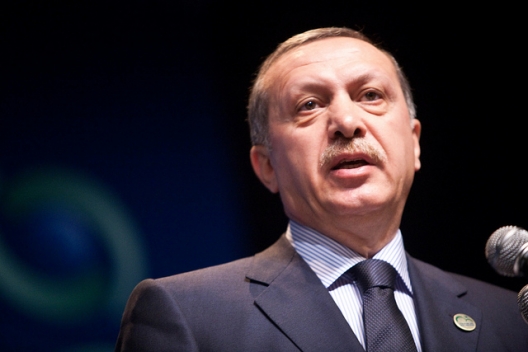 Turkish society has long been steeped in conspiracy theories, but the widespread stoking of anti-Americanism today is unprecedented. The accusations leveled at me and the other participants in our workshop — in the absence of any evidence — are cynical attempts to blame Washington and bully the United States into extraditing Mr. Gulen, and maybe even force it to abandon its support for the Kurds in Syria in the fight against the Islamic State….
Turkish society has long been steeped in conspiracy theories, but the widespread stoking of anti-Americanism today is unprecedented. The accusations leveled at me and the other participants in our workshop — in the absence of any evidence — are cynical attempts to blame Washington and bully the United States into extraditing Mr. Gulen, and maybe even force it to abandon its support for the Kurds in Syria in the fight against the Islamic State….
The Turkish press, which is almost totally controlled or influenced by the government, has come to characterize the United States as Turkey’s primary enemy. The government seems not to understand the long-term consequences of this.
Concerned about the safety of its citizens, the United States government has already announced a one-year suspension of Fulbright teaching fellowships to Turkey. Soon, civil society will pay a price, too, as opportunities for dialogue and space for honest analysis and critique, not to mention international business confidence, diminish.
The Obama administration clearly hopes that quiet diplomacy and time will somehow return things to normal. In dealing with Turkey, a difficult ally prone to gusts of emotion, Washington’s fallback option has always been to turn the other cheek. But this won’t work in today’s atmosphere of calculated hysteria….
President Obama will meet on Sunday with his Turkish counterpart. Mr. Obama is the only American official who still carries weight in Turkey. When he speaks with Mr. Erdogan, he should address genuine Turkish concerns about the coup attempt. But he should also use the opportunity to forcefully — and publicly — demand an end to America-bashing before it is too late.
Henri J. Barkey is the director of the Middle East program at the Woodrow Wilson Center for International Scholars.
Image: Turkish President Recep Tayyip Erdogan, May 28, 2010 (photo: UNAOC)
